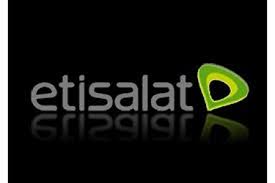The intervention by the National Communications Commission (NCC) and the Central Bank of Nigeria (CBN) in negotiations between Etisalat Nigeria and the consortium of Nigerian banks may have come to nought. The banks have rejected a 5% equity offer in the firm in exchange for the loans. The banks may have considered several factors before rejecting the offer.
Cash not equity
- Banks would prefer cash to an equity stake, as it meets their immediate needs. The uncertainties surrounding the company, and an economy still in recession mean buyers may not be keen on taking the stake.
- Etisalat may also have to raise additional capital thus diluting the share capital of the firm. The equity stake of 5% puts the total valuation of the firm at $20 billion, a gross over valuation of the firm. Dangote cement, the biggest company on the Nigerian Stock Exchange (NSE) has a market capitalization of $9.1 billion and revenues of $2.1 billion. The banks would have a hard time selling the stake to any interested buyers.
- Since there are several banks involved in the deal, the 5% stake would have to be held by all the banks. Individual banks may thus end up with fractional ownership of the company. That would be ion even more difficult for them to sell. All the banks would have to sell their stake at once. Banks with immediate needs may thus have to find alternative means of shoring up their capital.
What about this option?
Seeing that no one wants a receivership, banks will have to hold out for a stake higher than 5% or force the parent company to stump out the $1 billion. Both options seem implausible in the scheme of things. Commercial banks hardly accept equity as collateral and look set to continue to reject any offers regardless of the percentage. If the parent company thinks the company is worth that much, while not sell that stake and pay the banks.
We believe a bailout option may be on the cards at some point in the future. The CBN through AMCON, or ADB may decide to take up the equity stake in exchange for cash in Etisalat. Anything short of this will amount to nought considering the stakes. The CBN can use its leverage to force Etisalat to relinquish more equity to a special purpose vehicle owned in part by any of the multilateral financial institutions.
This might sound out of line considering that it might take time to consummate but it is probably already on the cards. No Nigerian bank will want to hold on to these shares not with all the non-performing loans in their books. A market to market Etisalat equity stake will produce the same result so why bother. But with long term financing from a CBN sponsored vehicle, we could reach a deal that will work for all. Finding that vehicle is where the hard work begins.








